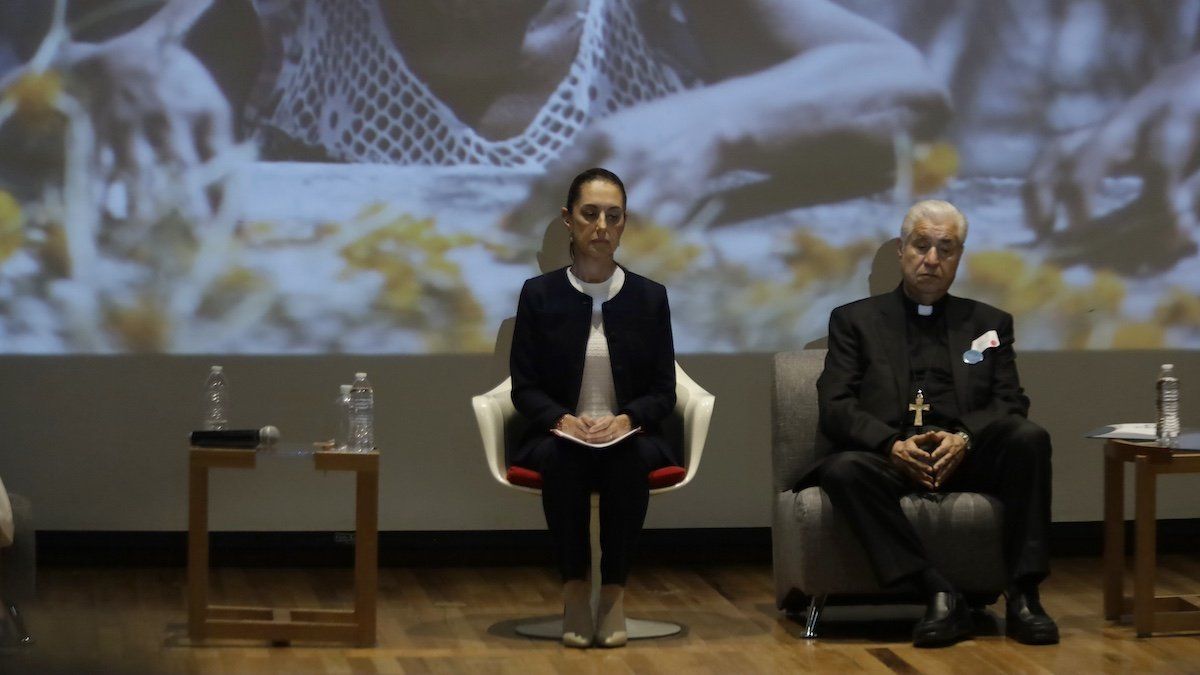In June 2022, a man fleeing a drug gang took refuge inside a church in a remote region of northern Mexico. Armed men followed him into the church, killed him, and murdered two Jesuit priests who tried to intervene.
That event has since strained relations between the Catholic Church and President Andres Manuel López Obrador, whom church leaders blame for failing to contain the country’s still-high rates of violent crime.
López Obrador’s presidency will end – he’s term-limited – later this year following an election to choose his successor. The popular leader has endorsed former Mexico City Mayor Claudia Sheinbaum of his Morena party, and she is the heavy favorite in June’s election.
This week, all three presidential candidates signed a document entitled “Commitment for Peace,” drafted by Mexico’s Roman Catholic leadership, that calls for new efforts to lower the country’s violent crime rate. But Sheinbaum, beating back implicit criticism of López Obrador’s failure on the issue, noted that she disagreed with the church’s claim that Mexico suffers a “profound crisis of violence.”
López Obrador’s security minister reported in January that the country’s homicide rate
fell 10.8% in 2023, but Mexico's 29,675 murders last year still averaged 81 per day. The challenge of violent crime, and the delicate political dance around it, will continue.
